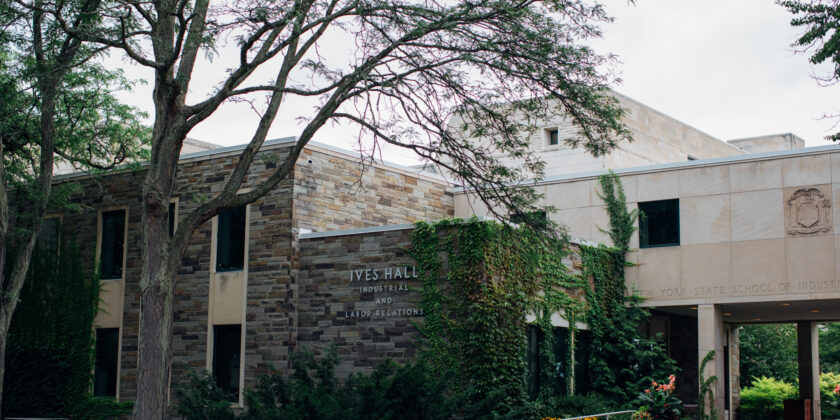Authentic College Applications
Do they exist? Absolutely.
Sophomores and juniors, this article by Brennan Barnard, is for you.
*Stay in the know! Subscribe*

Do they exist? Absolutely.
Sophomores and juniors, this article by Brennan Barnard, is for you.
*Stay in the know! Subscribe*

As part of your college application, extracurricular activities—including those over the summer— help demonstrate your intellectual curiosity and commitment to an area of study (typically, the one you might pursue in college). The following programs are some of our favorites for students interested in math.
Please keep in mind that “programs” are not the only way to explore academic interests. In fact, many colleges like to see students go beyond canned programming (ask us about this directly). You can join clubs at your school or locally, take free online classes via edX and Coursera, shadow or intern (aka volunteer for most students), or work with a teacher at your school to develop an independent study—there are tons of options ranging from super formal (and pricey) to those as simple as reading in your free time. They all “work” to build your academic narrative and explore your area(s) of interest.
*Stay in the know! Subscribe*

International enrollments fell 15 percent in fall 2020, the largest one-year tumble in the 72 years the Institute of International Education has been publishing the annual international-student census. By comparison, foreign-student numbers declined cumulatively by less than 4 percent in the years following 9/11.
Wake Forest Makes Tailgates More Inclusive. The university adds music, seating, food trucks and tent rentals to pre–football game tailgates, hoping to draw students who have never felt welcome at the fraternity-dominated events.
GW Launches Interdisciplinary Climate and Health Institute. The institute brings together faculty to explore cross-cutting research and advance policy solutions to the 21st century’s most significant health challenge.
*Stay in the know! Subscribe*

New NCAA eligibility guidelines released!
Admissions as a Game of Chance? New Research Says Lotteries Could Decrease Diversity.
High School Students and Counselors Are Burned Out. We feel this.
One response: “Our kids are really burnt out. Their usual ability to persevere is significantly lower. They are needing schools to come to them not the other way around. Doing virtual events is NOT helpful as they don’t even want to look at a screen.”
Another response: “Students are experiencing a lot of stress and anxiety with being back in person. Even the brightest students are struggling with completing homework and being present.”
And another: “Our students are markedly less mature this year, and moving through the college application process slowly. I don’t know that Ursinus can help, but the pandemic definitely hurt the students’ development and maturity.”
This article is definitely worth a read as we all need to keep mental health and wellness at the top of our to-do lists with our students.
*Stay in the know! Subscribe*

Penn Admissions has shared four great informative guides to help students with their college application process—and they are NOT Penn specific (although the samples they provide are)!
Narrowing Down Your List
Fill out a worksheet for each school on your list while visiting school websites, exploring virtual tours, and attending information sessions. Compare worksheets and see which schools match your must-haves. Download Guide 1
Curriculum & Majors
This second guide will help you narrow down which colleges will be the best fit for you based on academics offered. Use this worksheet to learn more about a school’s curriculum, majors, and learning opportunities. Download Guide 2
Tracking Application Requirements & Deadlines
There’s a lot to keep track of when you’re applying to multiple colleges. Use this worksheet to stay organized and take some of the stress out of the application process. Download Guide 3
Highlighting Your Extracurriculars & Activities
This worksheet will prepare you for the activities section of your college applications. Think of this guide as a way to brainstorm what you’ve been involved in through high school, what your commitment looked like, and how things may have changed in the past year. Download Guide 4
Bonus: Watch this video for even more tips on activities!
Thanks, Penn! Pair this advice with The Complete College Essay Handbook and get ready to apply!

The start of junior year is the perfect time to determine your story for applying to college. What majors are you considering? What have you done to explore those majors? Where will you add value in college both inside and outside of the classroom? Is your value add clear on your resume?
It might seem early since you won’t be submitting apps until this time next year, but those apps are much easier to write if you’ve done some work ahead of time.
Juniors, right now you can:
Speaking of essays now would be a great time for juniors to grab a copy of our book, The Complete College Essay Handbook!
*Stay in the know! Subscribe*

Even in a pandemic, Forté’s mission of #MoreWomenLeading remains the same. Please join us in encouraging undergrad women to invest in their future selves by helping us spread the word about Forté’s upcoming virtual Fall College Conferences!
Forté Undergraduate Campus Leadership Summit
This is an opportunity for undergrad women to maximize their personal strengths and develop their unique leadership style. Open to sophomores, juniors, and seniors who are collegiate chapter student leaders, women in business club student leaders, and Forté Undergraduate Campus Ambassadors.
Sept. 30 – Oct. 1, 2021
Registration Deadline: Sept. 23
College Fast Track to Finance Conference
Open to sophomores and juniors of all majors interested in exploring the many career paths in finance. First-year students who are business majors or have previous experience and seniors that have not accepted full-time employment may also register.
Oct. 14-15, 2021
Registration Deadline: Oct. 1
Partners: PIMCO, Bank of America, Bloomberg, Credit Suisse, Deutsche Bank, Evercore, Greystar, Guggenheim Partners, Hines, J.P. Morgan, PNC, and Vanguard
Candid Conversations for Black, Latinx, and Native American Undergraduate Women Conference
Open to college women from historically underrepresented groups in business and diverse academic backgrounds — with a focus on the experiences of Black, Latinx, and Native American women.
Oct. 28-29, 2021
Registration Deadline: Oct. 15
Partners: PIMCO, Anheuser-Busch InBev, Bank of America, Bloomberg, Credit Suisse, DaVita, Deloitte, The Dow Chemical Company, Evercore, Hines, Liberty Mutual, UBS, and PNC
If you know a woman who would benefit from attending our virtual conferences, please send her this link: http://bit.ly/fortecc. You can also post the following on your social channels to help spread the word:
The business world needs more women leaders. Registration is now open for undergrad women to build leadership skills, expand their network, and develop their personal brand at Forté College Conferences this fall. Let’s get #MoreWomenLeading! http://bit.ly/fortecc.
Thank you for spreading the word about these events and Forté’s mission to get #MoreWomenLeading!
*Stay in the know! Subscribe*

Making Caring Common’s Youth Advisory Board is a diverse group of high school students from across the country who are committed to making schools more caring and respectful places through everyday interactions. Members guide our understanding of and help devise solutions to the most pressing moral issues and social challenges of their peer groups, such as bullying and exclusion. They provide feedback on our ideas, share their thoughts on current events, and make sure we’re on the right track when communicating information to young people.
We are looking for young people with the following characteristics:
We are particularly interested in including young people who are not typically identified as leaders in their schools, those who may be socially marginalized, and those who represent minority groups within their school community.
The deadline to apply is October 4, and you can submit your application here.
*Stay in the know! Subscribe*

Our essay experts know best!
Check out these 10 tips from Emma, co-author of The Complete College Essay Handbook, that will help you write the most effective personal statement.
If you are a senior, the time to write is NOW!
Of course, your essay might have one of these messages at its heart. Maybe you did learn more from the kid you tutored than they learned from you. Maybe you did find the “silver lining” in a terrible situation. Both of these could make for great essays. But you want to verbalize that realization in your own unique and surprising way.
Interested in working with Emma? Contact us.
*Stay in the know! Subscribe*
